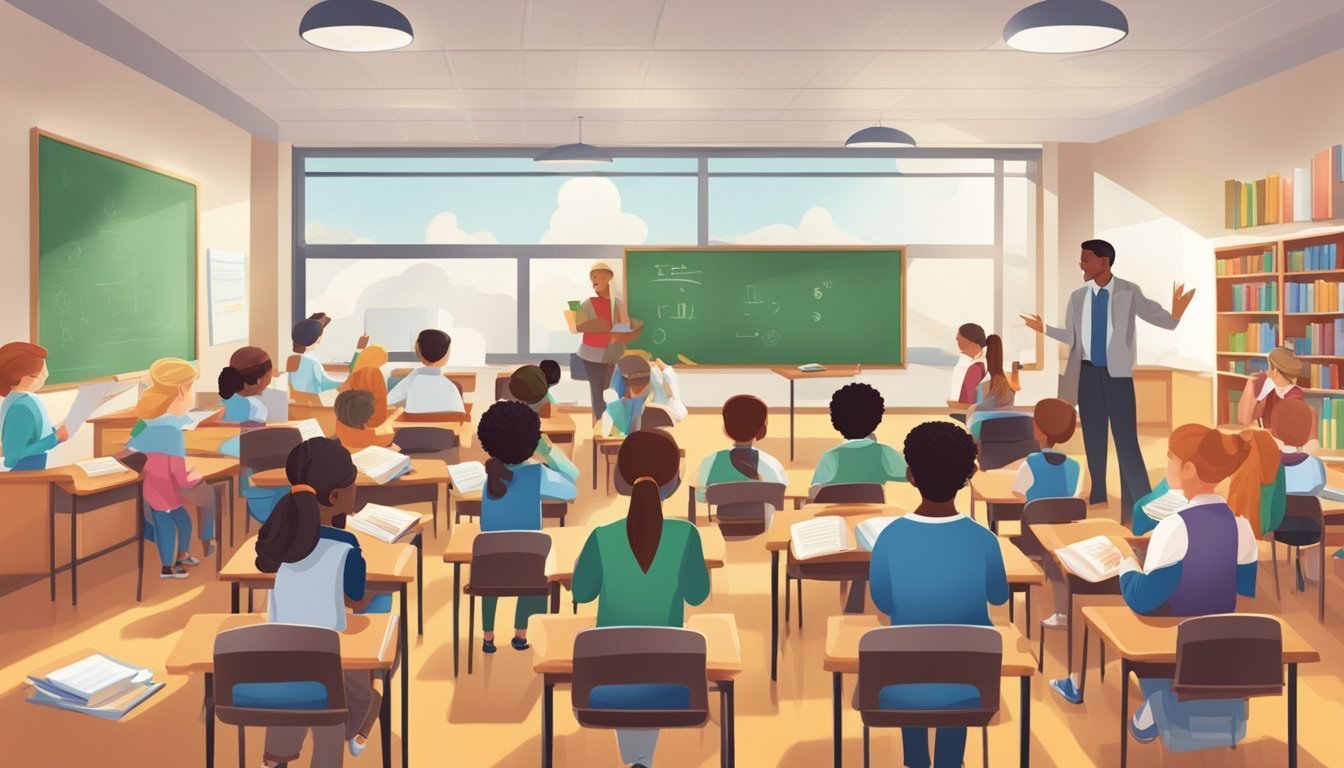As I reflect on my experiences over the past two decades in education, I have come to realize that my earlier claim—that I had never met an educator who changed my life—was not only misguided but also quite narrow.
The Journey of Understanding
My views on teaching and learning have transformed greatly over the years, yet one undeniable truth has stayed with me since that very first day I walked into a classroom.
I can still picture myself in that college education class almost twenty years ago.
Our professor, a retired public school teacher now working as an adjunct, invited us to share stories about teachers who made a significant impact on our lives.
While my classmates easily shared their uplifting experiences, I sat in silence, feeling out of place—not just as the lone male in the room, but also burdened by the absence of an inspiring story to tell.
When it was finally my turn, after a series of heartfelt accounts from others, I made a dismissive comment about my teachers, asserting that most had been ineffective and that I could teach better.
Today, I regret that statement deeply.
Not only was it egotistical, but it was also an inaccurate reflection of my experiences—a realization that hit me much later.
Three years before entering that college class, I had arrived in the United States with just a few belongings and only a basic grasp of English.
Quite by accident, I found myself placed in a standard English class instead of the English-language-learning course I had intended to join.
My journey into English literature began with “Huckleberry Finn,” and initially, I had no appreciation for Huck’s regional dialect.
That experience left me feeling overwhelmed and convinced that mastering the language would be impossible.
Now, as a high school AP English Language and Composition teacher, along with my role as a college composition instructor, I recognize how pivotal high school teachers were in my journey toward education.
The Role of Educators
I think back to my drama teacher, whose creative assignments significantly expanded my vocabulary, and my college adviser, who provided SAT prep resources that proved vital for my college readiness.
There was also the AP English teacher whom I observed during my coursework—her passion and dedication inspired me and eventually led me to teach AP classes in the same environment years later.
These experiences underscore the profound difference educators can make in their students’ lives, highlighting the transformative power of teaching.
By the end of that first education class, we were tasked with expressing our teaching philosophy, effectively composing our own educational manifestos.
I made a promise to myself then: I would strive to be a kingmaker, not someone who seeks the limelight.
I articulated my belief that great educators nurture the growth of their students while remaining humble, much like a kingmaker who operates quietly behind the scenes to uplift others.
Reflecting on my journey, I appreciate more deeply the wisdom that I shared years ago: educators must embrace lifelong learning.
Teaching is inherently tied to personal growth and development.
While I have honed my instructional skills, the motivation that drives me comes from an earnest desire to learn and evolve.
The Commitment to Growth
One of my mentees recently encapsulated this idea so well, expressing her doubts about her teaching capabilities yet radiating confidence in her thirst for knowledge.
This sentiment strikes a chord with me: the best educators are, at their core, seekers of understanding.
Embracing a lifelong pursuit of learning has become central to my identity, shaping both my professional responsibilities and personal beliefs.
The opportunity to foster growth and enlightenment in my students brings a profound sense of purpose.
Guiding their educational journeys feels akin to bearing the weight of a world on my shoulders, reminiscent of Atlas from mythology.
However, the road of teaching is paved with challenges that often feel like pushing a boulder up a steep hill.
During these moments, self-doubt can creep in, leading us to question the impact of our efforts.
It may feel like an uphill battle, yet we press on, driven by our belief in the importance of our work—a conviction that sustains our resilience.
As I ponder what it truly means to be an educator today, I find my current viewpoint less romanticized yet still aligned with my original philosophy.
An educator is both a kingmaker and a lifelong learner; the most effective teachers balance the roles of mentor and student within the classroom.
It is this delicate interplay that empowers educators to create enriching and meaningful learning experiences.
Source: Edweek


